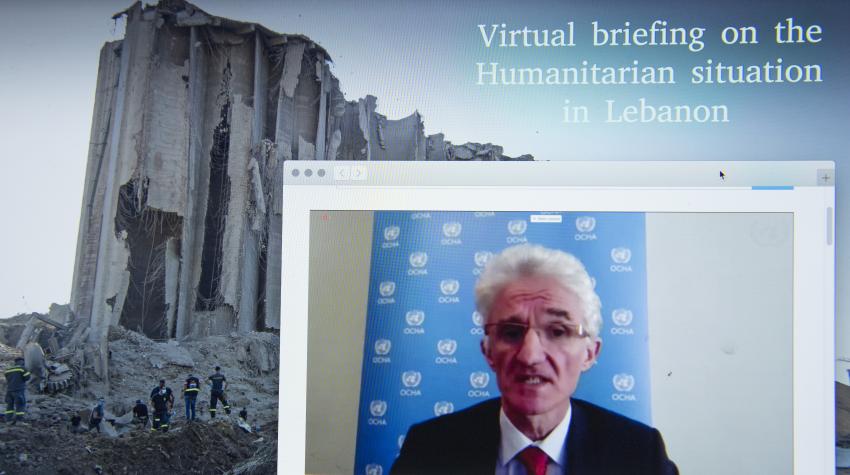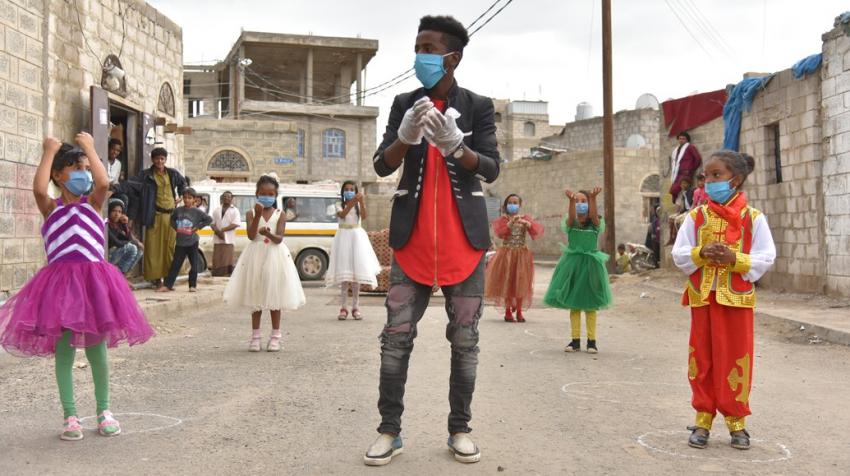No country has escaped the devastating impact of the COVID-19 pandemic and the profound economic crisis it has unleashed. We are learning ways to control the spread of the virus, but the number of infections—already more than 26 million confirmed cases worldwide—is still on a relentless upward trajectory. The economic impact, however, will probably hurt most people a lot more than the virus itself.
Some countries are finding pathways back to a cautious recovery from the first wave of the pandemic. To help their own economies, the Organisation for Economic Cooperation and Development and G20 countries have produced stimulus packages amounting to $11 trillion—approximately 10 per cent of global gross domestic product. They were right to do so. Other countries are teetering on the edge of disaster. They don’t have the options that are available to richer countries. They have been left wanting international support that measures up to the challenges they face. Many of these countries were already experiencing a humanitarian crisis before the pandemic hit. Infection rates are now rising, and the most vulnerable—women and girls, people with disabilities, older people—are bearing the brunt.
The United Nations Secretary-General launched the Global Humanitarian Response Plan for COVID-19 (GHRP) on 25 March to help countries in need. The plan has since been updated twice. The requirements today stand at $10.3 billion to support 250 million people in 63 countries. Yet, five months after its launch, the plan remains less than 25 per cent funded (as at 1 September 2020). Such an inadequate response from wealthier nations is short-sighted and not in anyone's best interests—including the richer countries. Failing to stem the pandemic and its socioeconomic consequences is a recipe for much larger and more expensive problems later. The virus must be brought under control everywhere, or it will continue to circle the globe and return to places where we thought it had been subdued. There is no alternative while we wait for a safe and effective vaccine, and a system to ensure an adequate level of immunization globally.
The economic cost of inaction is huge: countless millions more people being pushed into extreme poverty, decades of development progress lost, and the shadow of a generation’s worth of tragic and exportable problems looming. The World Food Programme (WFP) has warned that 270 million people could be pushed to the brink of starvation by the end of this year. Essential health services—immunization, malaria prevention, HIV/AIDS control, safe delivery and infant care—have been interrupted. Health-care facilities are overwhelmed, staff lack personal protective equipment and people stay away out of fear of contagion.
A particularly grim aspect of the pandemic is that gender-based violence has increased dramatically, with calls to dedicated hotlines increasing eight-fold in some countries. Money can help address these problems. With the funds available, United Nations agencies and non-governmental organizations on the frontlines are making good progress implementing the GHRP:
- Since the onset of the pandemic, nearly 221,000 health workers have been trained in infection prevention and control. More than 729,000 health workers have been provided with personal protective equipment.
- The World Health Organization has shipped 57 million masks to 56 countries and delivered more than 3 million diagnostic sample kits along with oxygen concentrators, infrared thermometers and oxygen masks.
- In Brazil, the hospital ship “Solidarity”, operated by NGO World Vision and the Presbyterian Church of Manaus, is reaching the most remote communities in the Amazon region with medical care and hygiene supplies.
- Nearly 7 million children and adults have access to a safe space and channels to report sexual exploitation and abuse. Agencies have ensured that services addressing gender-based violence remain available, including through psychosocial tele-services.
- A WFP-managed air service has reached 64 destinations throughout Africa, Asia, Latin America and the Middle East transporting over 21,000 health and humanitarian personnel on behalf of 325 organizations. A network of eight humanitarian response hubs has transported cargo to 166 countries.
- The United Nations Children's Fund (UNICEF) and partners have helped at least 25 million children and women with essential healthcare services and reached some 43 million people with critical water, sanitation and hygiene services. Other organizations have reached millions with soap, detergent and chlorine supplies.
- As movement restrictions remain in place, distance learning has been supported, while cash-based programming is growing as a method to provide livelihoods support.
- Millions of refugees, internally displaced persons, migrants and host communities—at high risk of contracting COVID-19 in densely populated settlements—have received supplies, and agencies are providing access to health services and advocating for their inclusion in the national health response.

These are tangible results that are possible when funding is available, including through the Central Emergency Response Fund and country-based pooled funds managed by my office, the Office for the Coordination of Humanitarian Affairs. Projects supported by these funds have already reached more than 20 million people with health awareness campaigns as well as personal protective equipment, health kits and medical supplies. I am grateful that many donors have contributed to the response. But much more is needed in the immediate and longer term. We are facing colossal, exceptional problems.
In the immediate term, we need increased financial support to the GHRP and other complementary initiatives. Crucially, we need international financial institutions to develop a new playbook to release money to meet the needs of people in the most vulnerable countries.
Recent history shows that wealthy nations can deal with problems at home and abroad at the same time. After the financial crisis of 2008-2009, fundraising for United Nations-coordinated humanitarian appeals increased in an expression of international solidarity. It makes public health sense to help all countries fight the virus. It makes economic sense to act promptly and generously in the most fragile settings to prevent the worst scenarios. There’s no need to wait until we hit rock bottom to learn that lesson.
4 September 2020
The UN Chronicle is not an official record. It is privileged to host senior United Nations officials as well as distinguished contributors from outside the United Nations system whose views are not necessarily those of the United Nations. Similarly, the boundaries and names shown, and the designations used, in maps or articles do not necessarily imply endorsement or acceptance by the United Nations.




